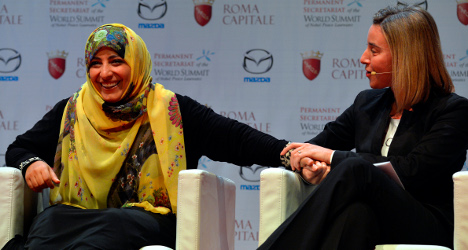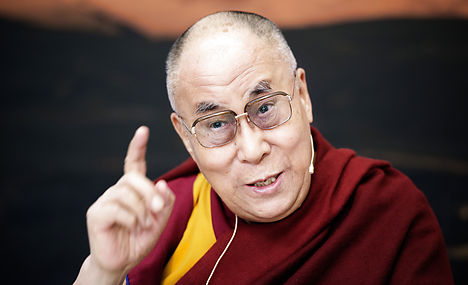"This threat arises from the continuing view of some great powers that they can achieve their goals through military force," said the peace winners in a press release at the end of a summit in Rome.
They highlighted the conflict in Ukraine, which they said was "threatening the stability of Europe", as well as conflicts in Syria, Iraq, Israel and the Palestinian territories, Afghanistan and South Sudan.
They underlined the threat of fanaticism in the guise of religion and expressed concern about an "increasingly dangerous turn" in events in the Middle East.
Participants in the summit, which started on Friday, included the Dalai Lama, former Soviet leader Mikhail Gorbachev, Iranian human rights lawyer Shirin Ebadi and Yemen's Arab Spring activist Tawakkul Karman.



 Please whitelist us to continue reading.
Please whitelist us to continue reading.
Member comments